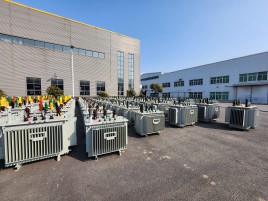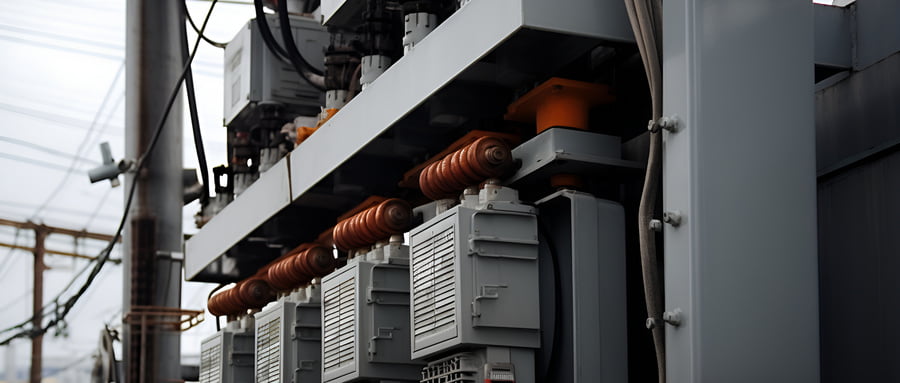A transformer connection group is a highly professional way of expressing the combined wiring form of the primary winding and secondary winding of the transformer. In the power system, its importance is self-evident. Under normal circumstances, common transformers have two connection methods on the high-voltage side: triangle and star. The triangle connection has the characteristics of a compact structure and strong stability and is suitable for some occasions with high requirements for voltage stability. The star connection performs well in reducing harmonic interference and improving power quality. On the low-voltage side, there are also triangle or star connections to choose from. These connection methods are combined with each other to form a variety of wiring forms. In addition, since there is a certain angle difference between the voltages on the high-voltage side and the low-voltage side, this further enriches the performance characteristics and applicable scenarios of the transformer.

In addition, there are two completely different ways to connect the neutral point of the high and low-voltage sides: grounded or ungrounded. Neutral point grounding can effectively improve the safety of the system and reduce the risk of electric shock; while the ungrounded method plays a unique role in certain specific environments and needs. It is these many factors that are intertwined and together constitute all the key elements of the transformer connection group. For example, the connection group marked on the transformer nameplate that we often see in our daily life and work, such as Dyn11. So, what does this mean? It means that the high voltage side adopts a triangle connection, the low voltage side adopts a star connection, and the neutral point of the low voltage side is grounded. When we have a deep understanding of the inherent rules of the transformer connection group, no matter how complex the nameplate identification is, we can see the mystery at a glance, so as to accurately grasp the performance and scope of application of the transformer, and provide a solid guarantee for the stable operation and efficient work of the power system.

Transformer connection group and winding method:
In the authoritative and normative system of IEC standards, the latest and detailed representation methods for transformer winding connection groups are clearly defined. For three-phase transformer windings, when they are connected in star, triangle, and zigzag shapes, the high-voltage windings are represented by capital letters Y, D, and Z with specific meanings and identification functions. For medium and low voltage windings, in order to distinguish them, they are represented by lowercase letters y, d, and z respectively.

Furthermore, if it is a star or zigzag connection and there is a neutral point lead, it will be accurately represented by uppercase YN or ZN, and lowercase yn or zn respectively. This meticulous and rigorous representation method is intended to ensure that the description of the transformer winding connection in the power field is accurate. It should be noted that the transformer winding connection is not a simple combination, but an organic combination in the order of high-voltage and low-voltage winding connection. The specific combination formed in this way is the so-called winding connection group.

Common connection groups and applicable scopes of transformers:
The meaning of Dyn11: “D” represents the triangle connection on the high voltage side. This connection has good stability and pressure resistance, and can withstand high voltage and current shocks. “y” means the star connection on the low voltage side, which helps reduce harmonic interference and improve power quality. “n” means the neutral point on the low voltage side is led out, and this design provides convenient conditions for the grounding protection of the system. “11” means that the phase difference between the high and low voltage sides is 30 degrees.

Meaning of Yyn0: “Y” indicates that the high voltage side is connected in a star connection and there is no neutral point lead. This connection simplifies the wiring structure of the high voltage side to a certain extent. “y” indicates that the low voltage side is also connected in a star connection, and “n” represents the neutral point lead. “0” means that the phase difference between the high and low voltage sides is 0 degrees. Application occasions: three-phase load is basically balanced; power supply system harmonics are not serious; commonly used in 10KV system.

Meaning of Yd1: “Y” means the high voltage side is star-connected, which is conducive to reducing the insulation requirements on the high voltage side and saving costs. “d” means the low voltage side is triangle-connected, which can provide a better circulation path and enhance the load capacity of the transformer. “1” means the phase difference between the high and low voltage sides is 30 degrees. In terms of usage, the Yd1 connection is often used in 35KV distribution systems.





